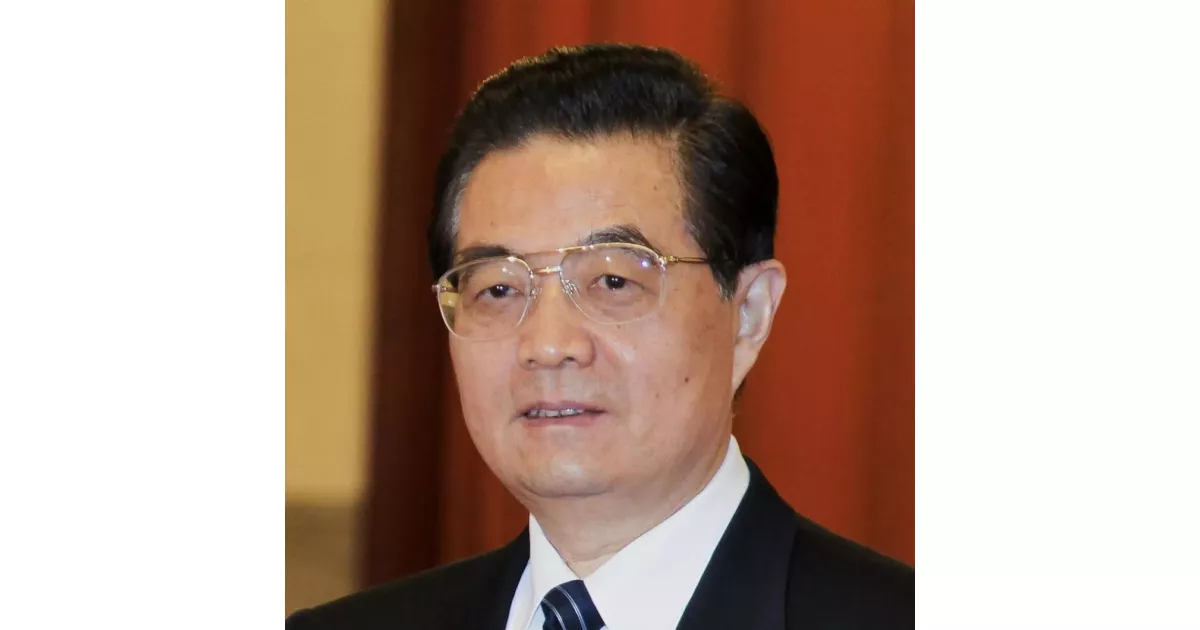Discover the career path of Hu Jintao, from the first major opportunity to industry-changing achievements.
Hu Jintao is a retired Chinese politician who held significant leadership positions, including General Secretary of the CCP (2002-2012), President of China (2003-2013), and Chairman of the Central Military Commission (2004-2012). He was a member of the CCP Politburo Standing Committee (1992-2012) and served as China's paramount leader from 2002 to 2012, playing a crucial role in the country's political and economic development during that period.
April 1964: Joined the Chinese Communist Party
In April 1964, Hu Jintao joined the Chinese Communist Party (CCP).
July 1965: Began working as an engineer
In July 1965, Hu Jintao began working as an engineer after graduating from Tsinghua University.
1968: Volunteered service in Gansu
In 1968, during the Third Front construction, Hu Jintao volunteered for service in Gansu and worked on the construction of Liujiaxia Hydroelectric Station.
1969: Started working for Sinohydro Engineering Bureau
In 1969, Hu Jintao began working for Sinohydro Engineering Bureau.
1973: Transferred to Construction Department of Gansu
In 1973, Hu Jintao was transferred to the Construction Department of Gansu as a secretary.
1974: Continued working for Sinohydro Engineering Bureau
In 1974, Hu Jintao was still working for Sinohydro Engineering Bureau.
1980: Deng Xiaoping implemented the "Four Transformations" program
In 1980, Deng Xiaoping implemented the "Four Transformations" program and Song Ping discovered Hu Jintao and promoted him several ranks.
1982: Promoted to Communist Youth League Gansu Branch secretary
In 1982, Hu Jintao was promoted to the position of Communist Youth League Gansu Branch secretary and was appointed as the director of the All-China Youth Federation.
1985: Transferred to Guizhou as provincial Committee secretary
In 1985, Hu Jintao was transferred to Guizhou as the provincial Committee secretary of the Chinese Communist Party.
1987: Handled local students protest carefully
In 1987, Hu Jintao carefully handled the local students protest in Guizhou, in contrast to the protests in Beijing that led to Hu Yaobang's resignation.
1988: Transferred to Tibet Autonomous Region
In 1988, Hu Jintao was transferred to become Party Regional Committee secretary of the Tibet Autonomous Region and Political commissar of the local People's Liberation Army units.
October 1992: Became member of Politburo Standing Committee
In October 1992, Hu Jintao became the youngest member of the seven-member Politburo Standing Committee.
1992: Became leading member of the Secretariat of the Chinese Communist Party
In 1992, Hu Jintao became a leading member of the Secretariat of the Chinese Communist Party, overseeing day-to-day operations and the Central Party School.
1992: Joined CCP Politburo Standing Committee
In 1992, Hu Jintao became a member of the CCP Politburo Standing Committee.
1998: Became Vice President of China
In 1998, Hu Jintao became the Vice President of China and promoted Jiang's "Three Stresses" movement.
1999: China's leading voice during the bombing of the Chinese embassy in Belgrade
In 1999, Hu Jintao became China's leading voice during the United States bombing of the Chinese embassy in Belgrade.
2001: Publicized Jiang's Three Represents theory
In 2001, Hu Jintao publicized Jiang's Three Represents theory.
November 2002: Became CCP General Secretary
In November 2002, Hu Jintao became the CCP general secretary, making him the paramount leader of China.
2002: Became General Secretary of the CCP
In 2002, Hu Jintao became the general secretary of the Chinese Communist Party (CCP).
2003: SARS outbreak and dismissal of officials
In 2003, during the SARS outbreak, Hu Jintao dismissed several party and government officials, including the health minister and the Mayor of Beijing, due to initial cover-up and slow response to the crisis.
September 2004: Jiang Zemin resigned as CMC chairman
In September 2004, Jiang Zemin resigned as CMC chairman, after which Hu Jintao took on the three institutions in the People's Republic of China where power lay: the party, the state, and the military.
2004: Became Chairman of the Central Military Commission
In 2004, Hu Jintao became the chairman of the Central Military Commission (CMC).
April 2005: Meeting with KMT chairman Lien Chan
In April 2005, Hu Jintao met with then-KMT chairman Lien Chan, marking the first meeting between the leaders of the two parties since the conclusion of World War II.
2005: Liberalized exchange rates for the yuan
From 2005 to 2012, under Hu's administration, exchange rates for the yuan were liberalized and the peg to the U.S. dollar was broken, leading the yuan to rise by 31% against the dollar.
March 2006: Released the "Eight Honors and Eight Shames"
In March 2006, Hu Jintao released the "Eight Honors and Eight Shames" as a set of moral codes to be followed by the Chinese people.
2006: Articulated foreign policy objectives
In 2006, Hu Jintao articulated the four phases of China's foreign policy developmental objectives, prioritizing big powers, periphery countries, developing countries, and multilateralism.
2006: Launched "Eight Honors and Eight Shames" movement
In the beginning of 2006, Hu Jintao launched the "Eight Honors and Eight Shames" movement to promote a more selfless and moral outlook.
June 2007: Gave important speech at the Central Party School
In June 2007, Hu Jintao gave an important speech at the Central Party School, using a populist tone and noting the need for increased democracy.
October 2007: Re-elected as General Secretary and Chairman of CCP Central Military Commission
On 22 October 2007, at the 17th CCP National Congress, Hu Jintao was re-elected as general secretary of the Central Committee and chairman of the CCP Central Military Commission.
2007: Scientific Outlook on Development written into CCP Constitution
In 2007, the Scientific Outlook on Development was written into the CCP Constitution.
March 2008: Re-elected as President
On 15 March 2008, at the 11th National People's Congress, Hu Jintao was re-elected as president and chairman of the PRC Central Military Commission.
April 2008: Met with Taiwan's vice president-elect Vincent Siew
On 12 April 2008, Hu Jintao met with Taiwan's vice president-elect Vincent Siew in the latter's role as chairman of the Cross-strait Common Market Foundation during the Boao Forum for Asia.
May 2008: Met with KMT chairman Wu Po-hsiung
On 28 May 2008, Hu Jintao met with KMT chairman Wu Po-hsiung, the first meeting between the heads of the CCP and the KMT as ruling parties.
June 2008: Governmental dialogue took place via the Straits Exchange Foundation and the Association for Relations Across the Taiwan Straits
In June 2008, governmental dialogue took place via the Straits Exchange Foundation and the Association for Relations Across the Taiwan Straits based on the 1992 Consensus, with the first meeting held in Beijing.
December 2008: Resumption of the Three Links
In December 2008, the two sides agreed on the resumption of the Three Links, i.e., a re-opening of mail, trade, and direct air links between the two sides.
2008: 2008 Beijing Olympics
In 2008, the Beijing Olympics took place, sponsored by Hu Jintao. It was one of China's achievements under his leadership.
2008: Scientific Outlook on Development written into State Constitutions
In 2008, the Scientific Outlook on Development was written into the State Constitutions.
2009: Called for bolstered arms control
In 2009, Hu Jintao called for a bolstered arms control agenda at the United Nations General Assembly, joining United States President Barack Obama's earlier calls for a nuclear-free world.
2010: 2010 Shanghai Expo
In 2010, the Shanghai Expo took place, sponsored by Hu Jintao. It was one of China's achievements under his leadership.
2010: Signing of the Economic Cooperation Framework Agreement (ECFA)
In 2010, the preferential trade agreement Economic Cooperation Framework Agreement (ECFA) was signed.
November 2012: Xi Jinping elected general secretary of the CCP and chairman of the CMC
In November 2012, immediately after the 18th CCP National Congress, Xi Jinping was elected to the posts of general secretary of the CCP and chairman of the CMC by the 18th Central Committee, succeeding Hu Jintao.
2012: Stepped down as General Secretary of the CCP
In 2012, Hu Jintao stepped down as the general secretary of the Chinese Communist Party (CCP).
March 2013: Succeeded by Xi as president
On 14 March 2013, Hu Jintao was succeeded by Xi Jinping as president.
Mentioned in this timeline

Barack Obama the th U S President - was the...

George W Bush the rd U S President - is...
India officially the Republic of India is a South Asian...
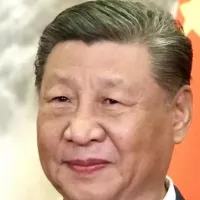
Xi Jinping is the paramount leader of China holding the...
Germany officially the Federal Republic of Germany is a nation...
China officially the People's Republic of China is an East...
Trending
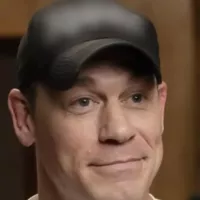
52 minutes ago John Cena discusses his rare friendship with Adam 'Edge' Copeland and their wrestling bond.
52 minutes ago UConn Dominates St. John's; Pitino Suffers Biggest Loss; Huskies Women's Team to Play at MSG

52 minutes ago UCF Knights Host Baylor, Pursue Tournament Hopes & Big 12 Honors for Dawkins.
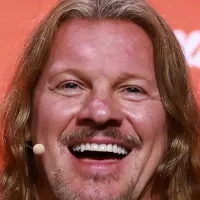
53 minutes ago Chris Jericho's AEW Contract Status and Potential WWE Elimination Chamber Appearance
2 hours ago León Seeks Third Victory Against Necaxa in Liga MX Match
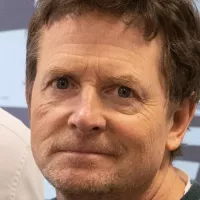
2 hours ago Michael J. Fox Inspired Harrison Ford's Parkinson's Monologue in 'Shrinking'
Popular

Jesse Jackson is an American civil rights activist politician and...

XXXTentacion born Jahseh Dwayne Ricardo Onfroy was a controversial yet...

Hillary Diane Rodham Clinton is a prominent American politician lawyer...

Michael Joseph Jackson the King of Pop was a highly...

Kashyap Pramod Patel is an American lawyer who became the...

Barack Obama the th U S President - was the...
